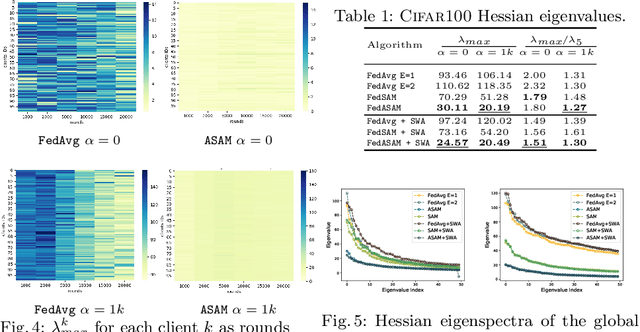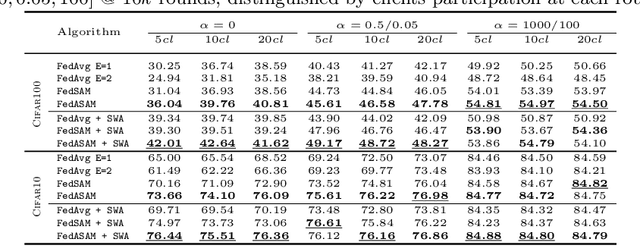Improving Generalization in Federated Learning by Seeking Flat Minima
Paper and Code
Mar 24, 2022



Models trained in federated settings often suffer from degraded performances and fail at generalizing, especially when facing heterogeneous scenarios. In this work, we investigate such behavior through the lens of geometry of the loss and Hessian eigenspectrum, linking the model's lack of generalization capacity to the sharpness of the solution. Motivated by prior studies connecting the sharpness of the loss surface and the generalization gap, we show that i) training clients locally with Sharpness-Aware Minimization (SAM) or its adaptive version (ASAM) and ii) averaging stochastic weights (SWA) on the server-side can substantially improve generalization in Federated Learning and help bridging the gap with centralized models. By seeking parameters in neighborhoods having uniform low loss, the model converges towards flatter minima and its generalization significantly improves in both homogeneous and heterogeneous scenarios. Empirical results demonstrate the effectiveness of those optimizers across a variety of benchmark vision datasets (e.g. CIFAR10/100, Landmarks-User-160k, IDDA) and tasks (large scale classification, semantic segmentation, domain generalization).
 Add to Chrome
Add to Chrome Add to Firefox
Add to Firefox Add to Edge
Add to Edge